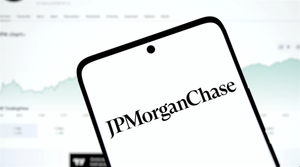Financial News
The Hidden War Within The Stock Market
--News Direct--
A war has been raging between the Giant Institutions of the Stock Market: the Buy-Side Institutions versus the Sell-Side Institutions. This hidden war started in 2008 and continues to impact every 401(k) or IRA holder, every self-directed investor and all short-term traders.
You will never read about this war in headline retail news. You may experience it through frustration about low ROI in your portfolio or losses in short-term trading. Retail news cites reasons for poor performance that are not at the heart of the problem. It is this hidden war that disrupts market activity from time to time. If an individual’s trading or investing activity is in the way, then you will be swept into its volatility without realizing it.
The Sell-Side Institutions are the giant Money Center Banks, like JP Morgan, and the Giant Financial Services Firms, such as Goldman Sachs. There are about a dozen Giant Sell-Side institutions remaining in business. Their revenues from the market are from acting as Market Makers by Selling Short during stressed markets and then buying to cover to Make the Market. They also have high income from underwriting IPOs, and their trading floors.
The Buy-Side Institutions manage the bulk of retirement accounts and provide brokerage services to many retail investors and retail traders. These are companies like Fidelity and Vanguard.
Prior to the 2008 banking debacle that nearly swept the entire world into a Great Depression, the largest banks of the world developed and sold trading products to the Buy-Side Institutions. That ended a few years after the collapse of Lehman Bros and the US government’s bailouts of the 6 Money Center Banks.
The US government did not bailout the Buy-Side Institutions of that era. The Mutual Fund Industry nearly collapsed due to the banks defaulting on Credit Default Swaps and Mortgage-Backed Securities. However, the Buy-Side Giants survived on their own resourcefulness despite massive redemption demands.
Mutual Funds to ETFs
The Giant Buy Side saved the mutual fund industry by creating their own Exchange Traded Derivatives, aka ETFs, which rapidly became the most popular investment for younger retail investors. Currently there are over 3000 ETFs offered on the US market, including Bitcoin ETFs.
The Buy-Side Institutions already own vast quantities of the most important Crypto currencies. They are posturing for total dominance of the new crypto financial market that will become mainstream possibly as early as 2024.
The NASDAQ Private Market
The Giant Sell Side is also facing losses of revenues from the NASDAQ Private Market (NPM), which opened last year. This is a professionals-only venue that provides access for the Buy-Side Institutions to invest in private companies directly. This lowers the investment cost.
This new Private Market is a “nursery” for very young companies, startups and new technology companies that are not yet ready to posture for IPO.
The NPM will affect the Sell-Side underwriters who made the bulk of their profits from these pre-IPO offerings, selling most of their underwritten shares of stock to the Buy-Side Giants before the IPO date.
Now, Buy-Side Institutions will own shares of a company before the stock is underwritten by a big bank. This changes everything about IPOs. It also will have a huge impact on retail investors and traders.
It is imperative that investors and traders understand how these internal structural changes to the stock market will impact your ROI or trading profits.
Buy-Side Alternative Transaction System Venues
FACT: Most of the giant-lot or block-order transactions of accumulation or rotation are invisible on the retail side. These venues are called “Dark Pools of Liquidity,” a large topic that will be discussed over several articles.
Fortunately, there is an easy way to identify the activity of the Giant Buy-Side Institutions who use Dark Pools of Liquidity on Alternative Transaction Systems to hide their accumulation or rotation into and out of stocks. It is called Relational Technical Analysis™. This new approach to studying stock charts includes:
1. Technical Analysis beyond the basics
2. Fundamental Analysis
3. Risk Assessment based on intent of the stock or ETF purchase
Using technical analysis with a RELATIONAL approach tells you WHO is in control of price at that time. Is it the Buy-Side Institutions, the Sell-Side Institutions or other market participant groups?
Using Fundamental analysis via stock charts with the new fundamental line indicators eliminates the most common frustration for investors: having to read, review and determine whether a company is making money and if growth can be expected. Learn how to let the Buy Side do this work for you.
Risk analysis is easy and simple when using Relational Technical Analysis™ as well.
I will continue this topic and expand over several weeks so readers can start to understand the inner workings of the stock market which are rarely available to self-directed investors and traders.
Next week, we’ll delve into the Dark Pools and how these hidden transactions function, why they are approved by the SEC and how you can trade with the Buy Side before the huge momentum runs that follow hidden accumulation.
Invest with Knowledge,
Martha Stokes, CMT
https://www.technitrader.courses/
TechniTrader has been teaching traders and investors a complete process for trading or investing in the stock market and other financial markets since 1998. We have helped over 500,000 traders and investors achieve their financial goals. Our courses provide a complete, comprehensive training program based on a college-style curriculum that uses a tri-level approach to analyzing assets or derivatives to trade.
This post contains sponsored content. This content is for informational purposes only and not intended to be investing advice.
Contact Details
TechniTrader
Mel Ainuu
Company Website
https://www.technitrader.courses/
View source version on newsdirect.com: https://newsdirect.com/news/the-hidden-war-within-the-stock-market-830134617
More News
View More





Quotes delayed at least 20 minutes.
By accessing this page, you agree to the following
Privacy Policy and Terms Of Service.



